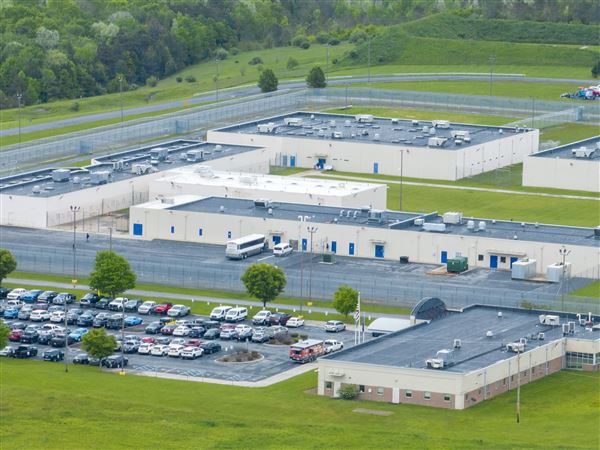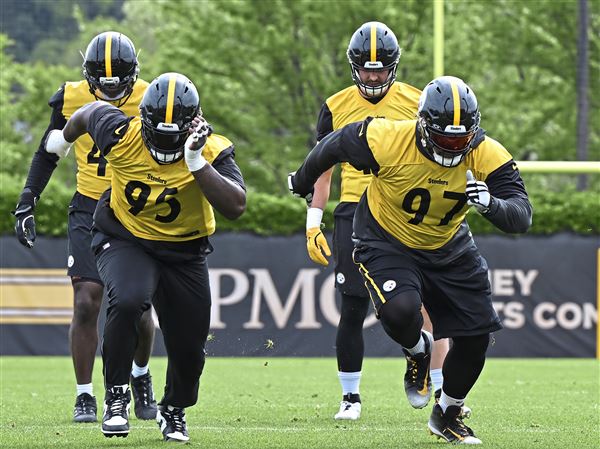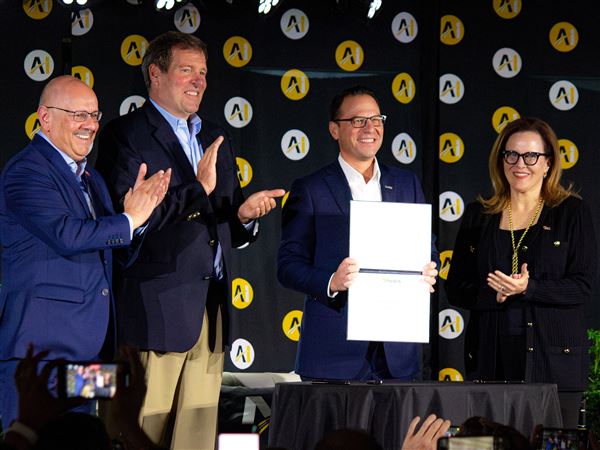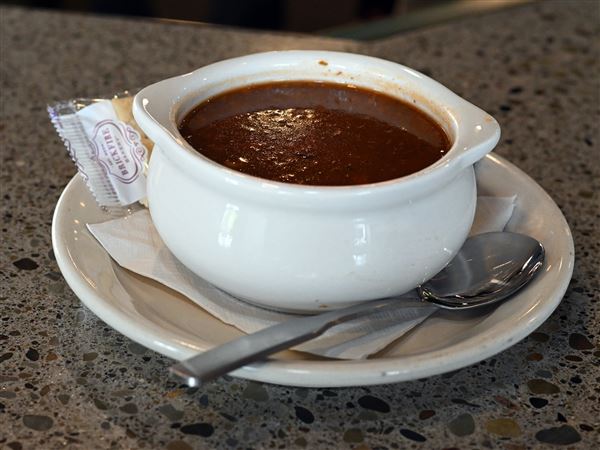Kathy Gullace had a tough time taking a lunch hour this week and going to the forum on organizing at the Carnegie Business Library Downtown.
During the 45 minutes of the program, e-mails continued to stream into her inbox. When she gets back from meetings, she is greeted by papers to deal with that she didn't have when she left.
Ms. Gullace, 33, was looking for some system to handle all of the extra stuff, the papers, e-mails and meetings that came along with her promotion five months ago at Highmark Blue Cross Blue Shield.
"Paper piles up. And the e-mails -- I have 11 e-mails that I got while I was sitting here," she said.
PG Plus video: Jill Revitsky from Discover Organizing talks about dealing with clutter. Visit www.post-gazette.com/plus.
Patty Kreamer, a professional organizer and the author of "But I Might Need it Someday," said having a system is E.A.S.Y. (professional organizers are really big on acronyms. This one stands for eliminate, act on it, send it away and -- because F didn't work well in the acronym -- you file it).
She said to set up personal folders or baskets for e-mails that you need to keep, and to make those folders reflect the same folders that you have in your file drawers; delete the e-mails you don't need; send away any e-mails that pertain to others instead of you; take actions on the e-mails that need them; and then do one of the previous steps.
"You can even create folders for the people who send a lot of e-mail," she said.
And don't be afraid to delete e-mail because e-mail is rarely ever completely gone; either the sender has a copy or someone else they copied has a copy just in case you realize later that you needed the e-mail.
"Typically," she said, "No one dies when you get rid of an e-mail."
The trick in all of the organizing, both at home and at work, she said, is that it's not about where you can put something, but where you will be able to find it.
Mrs. Kreamer said there is a huge amount of lost productivity related to organization -- or more correctly the lack thereof.
In a survey of office workers taken this month, Office Depot reported that 57 percent of its respondents said reducing or eliminating the piles of paper on their desks at work is a top priority for the new year. Nearly a third of the people they surveyed said they had lost or misplaced an important document.
Almost half of the people surveyed said that being disorganized had cost them time at work.
Mrs. Kreamer said the problem could be more costly to companies than they realize. For instance, if an employee spends five minutes an hour looking for things, that adds up to four work weeks a year.
Mrs. Kreamer's business, Kreamer Connect Inc., specializes in businesses and home offices, putting together systems for office clutter. She works mostly on a contract basis, spending half-days, days or weeks at offices both coaching and getting her hands dirty as she helps workers organize their spaces. If hired on an hourly basis, she charges $150 an hour, but the cost is really determined by the task at hand, she said.
"I love papers," she said, acknowledging that the thrill she gets from organizing loose piles of paper into neat rows of files does make her a bit weird. Once those files are made, she then indexes them and puts them into a spreadsheet so that it's even easier to find what is in the files.
Dealing with paper and e-mails means making decisions about what to do with them.
A pile of papers is just a physical manifestation of postponed decision making. A filled e-mail box is virtual clutter.
Cleaning up clutter, whether at home or at work, is not something that has to be done all at once. "This is a process, not an event," Leslie McKee of McKee organizing service in Pittsburgh said during the presentation at the Carnegie Library.
If it takes four hours to clean and organize a desk area, that time, she said, can come in 15-minute increments, so that in 15 minutes here and 15 minutes there, the job can be done.
"This is hard," Ms. McKee said. "If it was easy you would have done it."
The reason for the organizers, she said, is to support people as they make decisions and to keep them focused while they decide what to do with their stuff, being it belongings or papers.
"It's building that decision making muscle," she said. "We keep you in that seat while you get better and better at it."
First Published: January 24, 2010, 10:00 a.m.
















